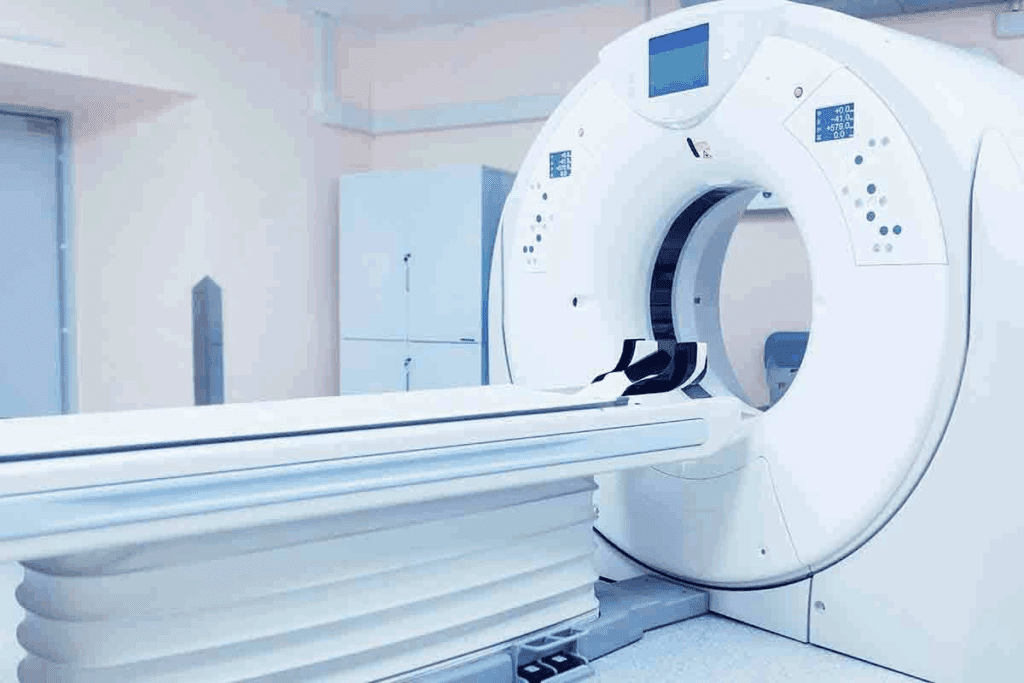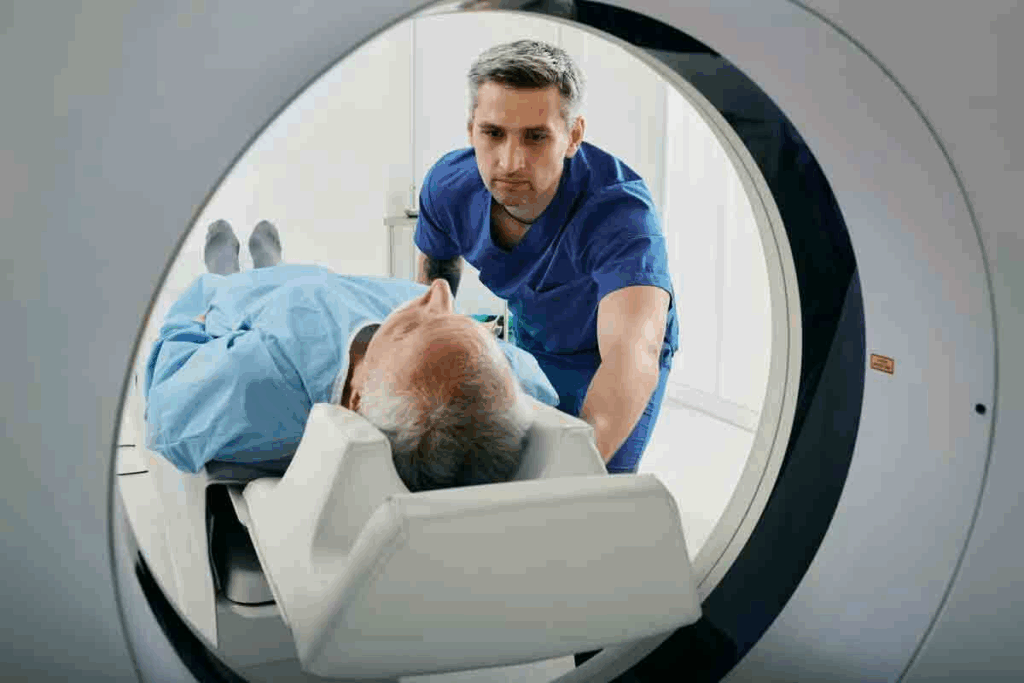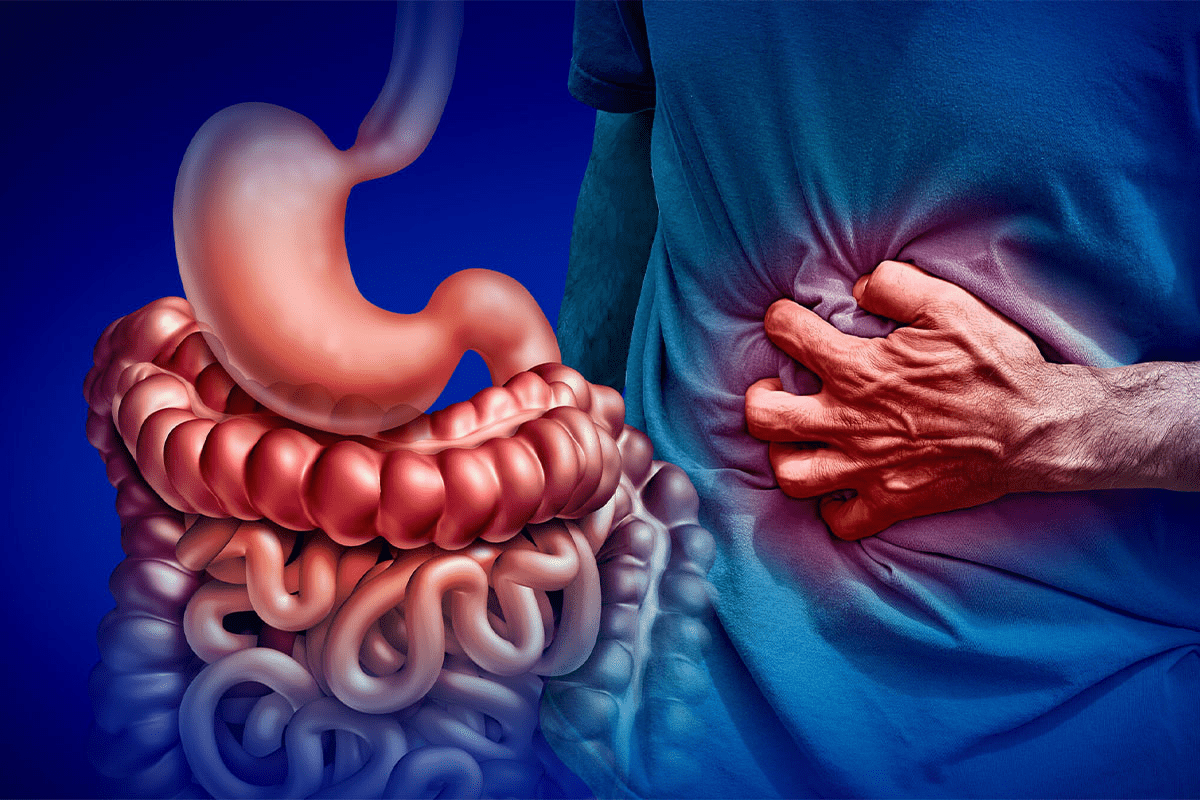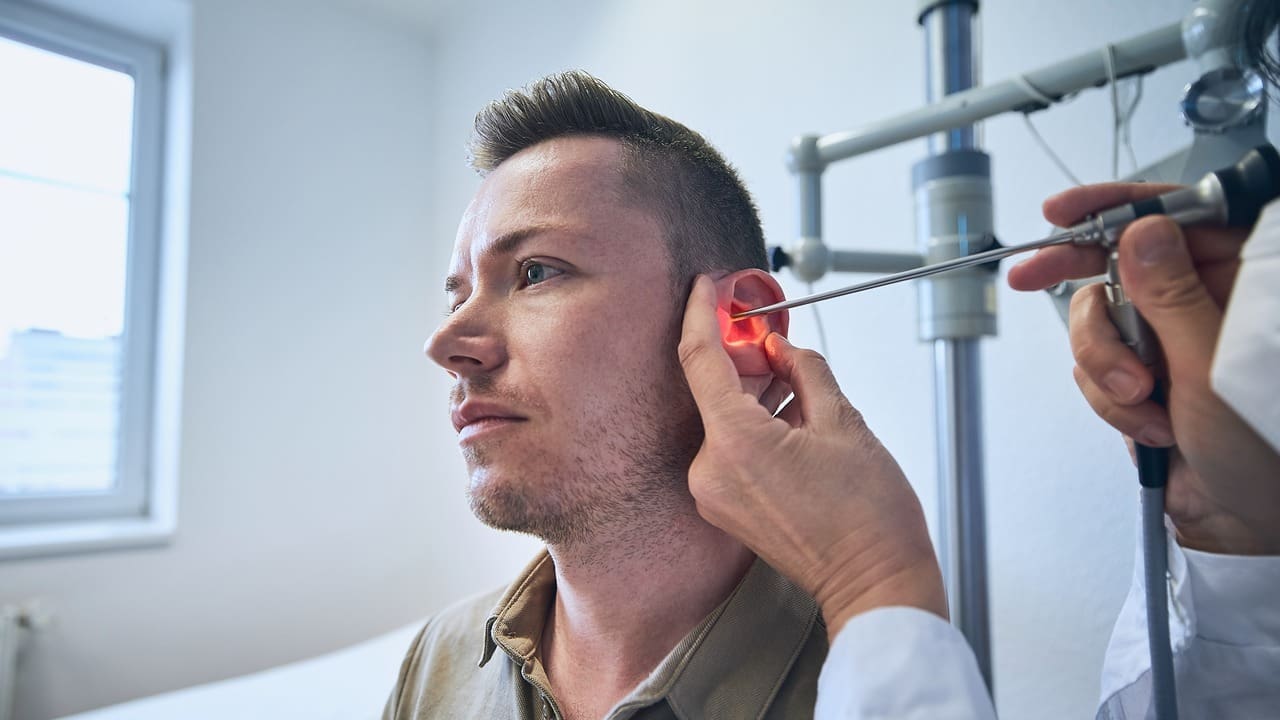Last Updated on November 27, 2025 by Bilal Hasdemir
Getting ready for a CT scan of the abdomen can feel overwhelming. It’s especially hard to grasp the prep steps and how long the scan takes. At Liv Hospital, we stick to the latest and safest ways to prepare for CT scans. This ensures our patients get the top care possible.

A CT scan of the abdomen usually takes between 10 and 30 minutes. Non-contrast scans are often quicker, under 15 minutes. Knowing this helps make your experience smoother.
We’ll walk you through the 7 key steps to prepare for a ct scan time duration of the abdomen. You’ll also learn about the c t scan time duration, so you know exactly what to expect. Being well-prepared means you’ll get clear results and have a comfortable time during the scan.
Key Takeaways
- Understand the typical duration of a CT scan of the abdomen.
- Learn the essential preparation steps for a CT scan.
- Discover how to ensure clear results from your CT scan.
- Find out how to prepare for a comfortable scanning experience.
- Gain insights into the protocols followed at Liv Hospital.
Understanding Abdominal CT Scans and Their Importance
An abdominal CT scan is a detailed imaging test. It shows cross-sectional images of the abdomen. This helps diagnose many conditions affecting the abdominal organs.
What Is an Abdominal CT Scan?
An abdominal CT scan is a non-invasive test. It uses X-rays and computer tech to show the abdomen’s organs and blood vessels. It’s key for spotting injuries, cancers, and vascular diseases.
Common Reasons for Abdominal CT Scans
CT scans are used for many reasons. They help find and track conditions like pain, injuries, cancers, and infections. They also guide biopsies and other procedures. Doctors choose CT scans when other tests don’t give enough information.
Types of Abdominal CT Scans: With and Without Contrast
There are two main types of abdominal CT scans. CT scans without contrast show structures like the kidneys, liver, and spleen. CT scans with contrast use a contrast agent to make certain areas more visible. The choice depends on the condition being diagnosed or monitored.
For an abdominal CT with contrast prep, patients might drink contrast or get it through an IV (CT scan IV). The contrast makes it easier to see what’s going on. Sometimes, patients are asked if they’ll drink contrast to see the GI tract.
Preparation for Abdomen CT Scan: Fasting and Dietary Guidelines
To get a clear CT scan of your abdomen, follow certain fasting and diet rules. Proper prep is key to clear images and a correct diagnosis.

Step 1: Following Proper Fasting Requirements
Fasting is often needed before a CT scan, especially with oral or IV contrast. Usually, you should not eat for two to four hours before if contrast is used. But fasting times can change based on the scan type and your doctor’s advice.
“Fasting is key for CT scan prep,” says a radiology expert. “It lowers risks and ensures top-quality images.” Always follow your healthcare team’s fasting directions carefully.
Step 2: Managing Hydration Before Your Scan
Even when fasting is needed, drinking water is important. Unless told not to, drinking water before the scan is usually okay. Staying hydrated helps contrast spread evenly and makes scanning smoother.
Also, some meds and foods might be off-limits before the scan. Your doctor will tell you exactly how to prepare, including any diet or hydration tips.
In short, getting ready for an abdominal CT scan means following fasting and diet rules. This prep helps make your scan efficient and accurate, leading to a better diagnosis and treatment.
Understanding CT Scan Time Duration and Procedure
When you’re getting ready for a CT scan of your abdomen, knowing what to expect can help ease your nerves. A CT scan is a key tool for doctors to find and treat health issues. We’ll explain what happens during a CT scan, covering how long it takes and the steps involved.
How Long Does a CT Scan Without Contrast Take?
A CT scan of your abdomen usually takes between 10 and 30 minutes. Scans without contrast, which don’t use special dye, are often done in under 15 minutes. The exact time can change based on the scan’s needs and the imaging center’s technology.
Scan duration can be affected by how complex the scan is, your health, and if more images are needed. Our medical team works hard to make the process quick and get high-quality images.
What to Expect During the Procedure
You’ll lie on a table that moves into a big, ring-shaped machine. The machine will move around you, taking X-ray pictures from different angles. You’ll need to stay still and might have to hold your breath briefly for clear images.
Feeling a bit nervous is normal, but our team is here to help. The CT scan technologist will talk to you through an intercom, making sure you’re comfortable and safe.
Knowing what happens during a CT scan can make you feel more at ease. If you have any questions or worries about the scan’s time or process, talk to your healthcare provider.
Contrast Material Preparation Steps
Getting ready for a CT scan includes steps like using contrast material. This material makes certain body parts stand out, aiding in diagnosis. We’ll walk you through how to prepare for a CT scan with contrast.
Oral Contrast Administration
Oral contrast is drunk 60 to 90 minutes before the scan. It helps show different parts of the abdomen clearly. “Drinking oral contrast is a common practice that helps ensure clear images,” say doctors. Though it might taste bad, it’s safe and needed for good images.
To prepare, you’ll drink a solution of barium or iodine. This outlines the intestines and other parts of the abdomen. It’s key to spotting problems in the gut. Always follow your doctor’s advice on how much and when to drink it.
CT Scan IV Contrast Considerations
IV contrast might also be used for more detailed images. It’s given through a vein in the arm, just before the scan. This contrast makes blood vessels and some lesions show up better.
IV contrast is usually safe, but there are things to know. People with kidney issues might need extra care. Some might feel a warm feeling or taste metal, but these effects are usually mild and short-lived. “The benefits of IV contrast in diagnostic imaging often outweigh the risks,” say experts.
Tell your doctor about any health issues, allergies, or worries before the scan. This helps make sure the contrast is used safely and works well.
Final Preparation Steps Before Your Scan
To make sure your CT scan of the abdomen goes well, follow these steps. As your scan day gets closer, there are important things to keep in mind. These will help make the process smooth and efficient—and give you a better understanding of the ct scan time duration and what to expect.
Appropriate Clothing and Accessories
On the day of your scan, wear loose, comfortable clothes that are easy to remove if needed. Avoid metal items like jewelry, zippers, or buttons, as they can interfere with imaging quality. “Wearing the right clothes can really help you feel more comfortable,” says a radiology expert—and it can also minimize the ct scan time duration by avoiding delays caused by metal removal or outfit changes.
It’s also best to leave extra personal items at home. This streamlines the check-in process and ensures your ct scan time duration stays as short as possible.
Disclosing Medical History and Allergies
Before your scan, be sure to inform the healthcare team about your full medical history and any allergies. This includes any past reactions to contrast materials and conditions like kidney disease or diabetes. This crucial step doesn’t just keep you safe—it can also help avoid complications that might extend your ct scan time duration.
Medical professionals stress that patient safety is their top priority. Being open about your health ensures a safer, smoother scan with no unexpected delays.
Arranging Transportation and Post-Scan Care
If sedation is part of your CT scan, arrange for someone to drive you home. Sedation can affect alertness, and having a trusted companion offers emotional support and safety. Planning transportation ahead of time helps ensure the ct scan time duration and recovery process go as planned.
Additionally, if your scan involves contrast material, staying hydrated afterward is important. Many patients ask, “Can I drink water before a CT scan?” The answer often depends on your case, but hydration is almost always encouraged to support kidney function and help process contrast agents efficiently—indirectly impacting the overall ct scan time duration by speeding recovery.
Why CT Scan Time Duration Matters
Understanding the ct scan time duration is an essential part of your preparation. Most abdominal CT scans take between 10 to 30 minutes, depending on whether contrast is used. Knowing this helps you plan your day, reduce anxiety, and arrive at your appointment better prepared.
At Liv Hospital, we explain every step, including what affects your ct scan time duration—from check-in to the use of contrast, or even the need for repeat images in rare cases.
Conclusion: Ensuring a Successful Abdominal CT Scan Experience
Getting ready for a CT scan of the abdomen might seem overwhelming. But by following the 7 key steps in this article, you can make the process easy and stress-free. At Liv Hospital, we are committed to offering top-quality healthcare with complete support, especially for international patients.
Remember, successful CT scan prep means understanding your dietary needs, managing contrast material properly, and knowing the ct scan time duration. When you’re informed, you’re more confident—and your scan is more likely to go smoothly.
Following your doctor’s guidance and understanding how the ct scan time duration fits into your day can reduce stress and prevent last-minute surprises. Our experienced radiology team uses the most advanced techniques to make sure the ct scan time duration stays short without compromising on quality.
By combining expert care with efficient scheduling, we ensure your ct scan time duration is optimized—because your time, safety, and health matter to us.
FAQ
What is the typical duration of a CT scan of the abdomen?
A CT scan of the abdomen usually takes 10 to 30 minutes. Non-contrast scans are often shorter, under 15 minutes.
Do I need to fast before a CT scan of the abdomen?
Yes, you should avoid eating for two to four hours before if contrast is used. But fasting isn’t always needed.
Can I drink water before a CT scan with contrast?
It’s best to follow your healthcare provider’s hydration instructions before the scan.
What is the purpose of contrast material in a CT scan?
Contrast material, like oral or IV contrast, makes images clearer. It helps spot abnormalities during the scan.
How long before the scan should I drink oral contrast?
Drinking oral contrast is common. It usually happens 60 to 90 minutes before the scan.
What should I wear on the day of the CT scan?
Wear comfortable, metal-free clothing for a smooth scan.
Do I need to disclose my medical history and allergies before the scan?
Yes, tell the healthcare team about any allergies or medical history that might affect the scan.
Can I eat and drink normally after the CT scan?
Unless your healthcare provider says otherwise, you can eat and drink as usual after the scan.
How long does it take to receive the results of a CT scan?
The time to get results varies. It depends on the healthcare provider and the scan’s complexity.
Is a CT scan of the abdomen a painful procedure?
A CT scan is usually painless. But you might feel some discomfort from the contrast or staying still during the scan
.
References:
- Mayo-Smith, W. W., Hara, A. K., Maher, M. M., et al. (2014). ACR Appropriateness Criteria® Acute Nonlocalized Abdominal Pain. Journal of the American College of Radiology, 11(10), 974-983. https://pubmed.ncbi.nlm.nih.gov/25157584/
- Paulson, E. K., & Thompson, W. M. (2016). Oral contrast agents in abdominal CT: when and how to use them. Radiologic Clinics of North America, 54(3), 471-485. https://pubmed.ncbi.nlm.nih.gov/26825611/
- Oliva, M., Levine, M., Taylor, A. J., et al. (2018). CT angiography principles and protocols in abdominal imaging. Radiologic Clinics of North America, 56(5), 877-890. https://pubmed.ncbi.nlm.nih.gov/30197268/






